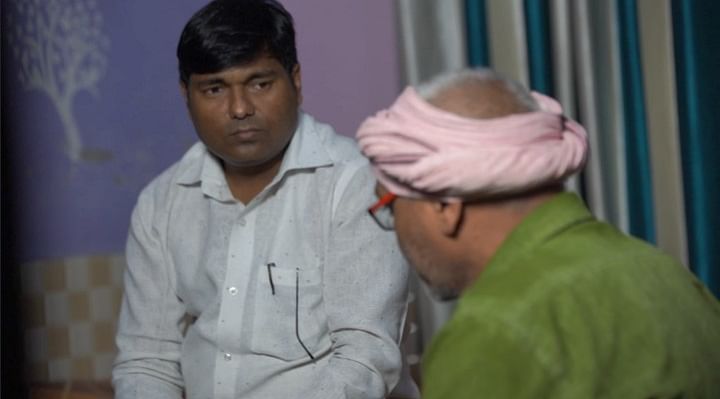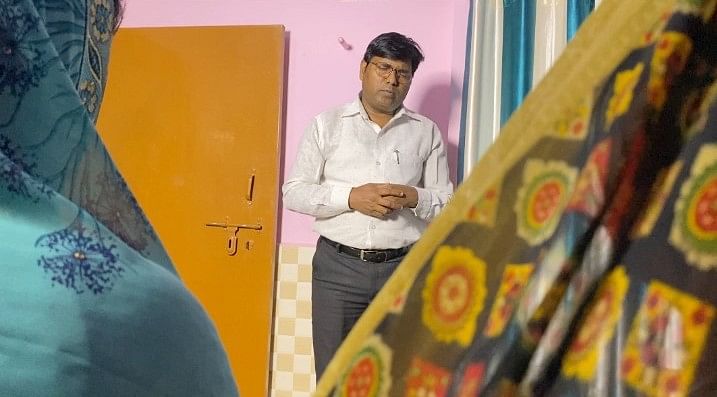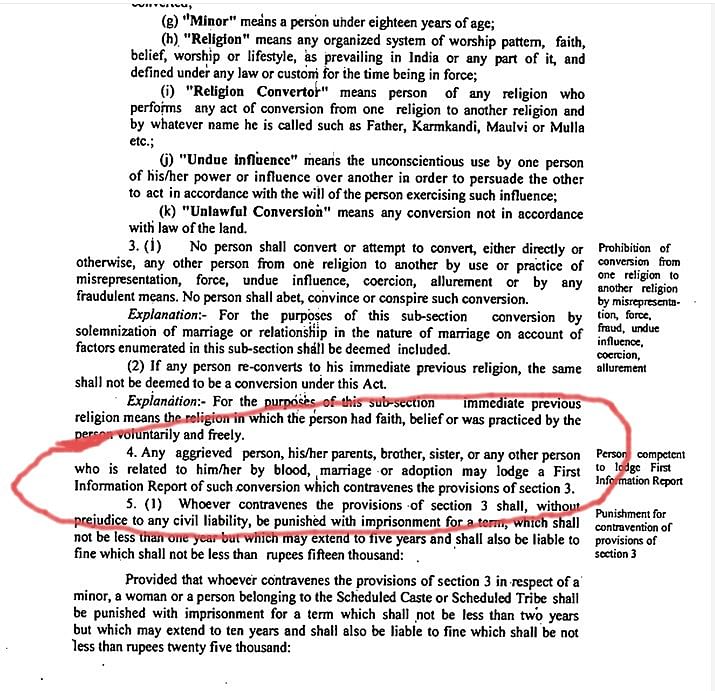By FATIMA KHAN
Cameraperson: Shiv Kumar Maurya
Video Editor: Purnendu Pritam
Ever so often, pastor Nandu Nathaniel Singh, 40, would get calls from local Azamgarh residents requesting him to conduct a prayer service at their homes. The reasons would vary from death in the family, to illness, to financial instability, or some other difficulty.
Pastor Nathaniel, as he is commonly known in Uttar Pradesh’s Azamgarh, where he has been residing for the last 15 years, would visit people’s homes and lead a prayer service as requested.
He started doing the same at Bahadur Maurya’s home every Sunday on his request in 2021. Maurya had converted to Christianity at least a decade before he met pastor Nathaniel.

“We were having a lot of difficulties; our children would fall sick often. So, we thought we need weekly prayers at our home for God’s constant blessings,” Maurya said.
As pastor Nathaniel began holding prayers at Maurya’s home, other Christians from nearby localities also started to attend.
But on 3 October that year, after a few months of holding the weekly prayer sessions, pastor Nathaniel was suddenly arrested by the Azamgarh police and charged with forceful religious conversion.
“I had no idea what was happening. Everyone who would attend my prayer services was already a believing Christian, so who was I forcefully converting? Who filed the complaint against me? I was confused,” said pastor Nathaniel. He spent the next five months in jail.

As it turned out, the complaint against the pastor wasn’t filed by any of the attendees of the prayer service, but by a neighbor of Bahadur Maurya. The neighbour, Sudhir Gupta, lives barely 100 feet from Maurya’s home and is a local BJP leader. There was just one problem with Gupta being the complainant in the FIR that led to Nathaniel’s arrest. As per the law, he can’t be the complainant.
‘Only Aggrieved or Family Member Can Complain’: UP Anti-Conversion Law
The Uttar Pradesh Prohibition of Unlawful Conversion of Religion Act was passed as an ordinance in November 2020 and then assented as an Act in March 2021. Section 4 of the Act states: “Any aggrieved person, his/her parents, brother, sister, or any other person who is related to him/her by blood, marriage or adoption may lodge a First Information Report of such conversion…”
The section, thus, makes it clear that the complainant in a case of forceful or fraudulent conversion, can either be the one who has been coerced into conversion or their blood relative or family member.

In this case, Gupta doesn’t fit into any of these categories. Moreover, Gupta hadn’t even once attended the prayer services where he alleges the forceful conversion was taking place…
This story was originally published in thequint.com. Read the full story here

